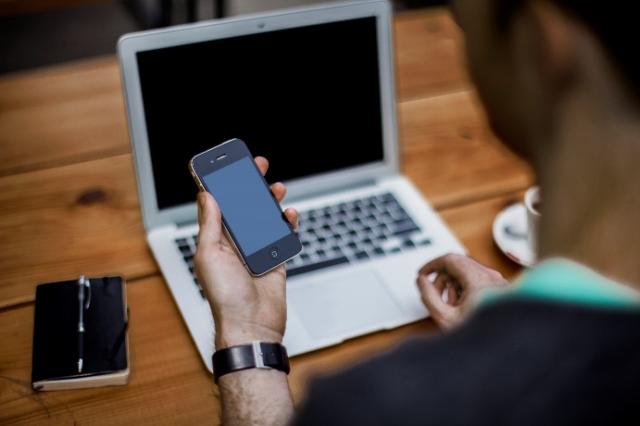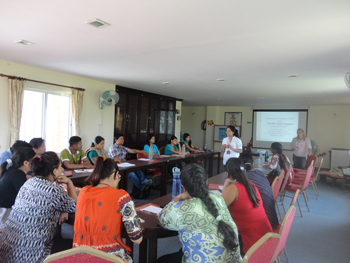|
ACBS Newsletter - August 2015
|
|||
World Conference 13 in Berlin is the biggest yet!
|
|||
Help with the creation of ACT mobile appsResearchers are looking for help from the ACBS community to create a guide for using ACT mobile apps in clinical work and for developing new apps. Drs. Michael Levin and Michael Twohig at Utah State University are asking ACBS members to complete an online survey of their uses, preferences, barriers and needs when it comes to ACT apps.
There has been a recent proliferation of mental health apps, including several ACT apps. With this comes a need to better understand what practitioners look for in an ACT app and what challenges they might encounter. “We are looking forward to sharing what we find with ACBS members” says Levin. “This survey will help characterize current uses of ACT mobile apps, barriers to overcome, and preferred features to guide future app development.” These results will also inform a set of app rating criteria, which will be used to create reviews of ACT mobile apps available in the marketplace. “With all of the apps out there, we want to create more of a review guide to help practitioners pick the right apps for their clients’ needs and goals” said Levin. Give your input on ACT mobile apps by taking the survey using the link below: |
|||
Q&A with J.T. BlackledgeIn this interview, J. T. Blackledge discusses defusion and its role in modern psychotherapy. He starts by providing a clear definition with functional implications, in part he says “Defusion, then, basically involves learning how to not take those misleading, problematic thoughts so seriously—to experience them simply as words, not binding realities.” Blackledge goes on to describe some common difficulties clinicians face when using defusion. He also provides examples of ways to integrate defusion techniques when working with clients on the acceptance of aversive private experiences as well as a number of other similarly important topics. To read the full interview click here. |
|||
Supporting the needs of people in the aftermath of the earthquake in Nepal
|
|||
Interview with Steven Hayes about ACT challenges in our local communitiesIn an interview with BeNe, the Dutch-Speaking Chapter of ACBS, Dr. Hayes answers questions about dealing with local treatment guidelines, the state of the evidence base and current research strategies, the relationship between CBT and ACT, the role of the DSM in the context of local healthcare systems, and a number of other questions about adapting ACT to specific local requirements. The interview is well structured and asked a series of in-depth questions about how ACT can be best utilized within specific healthcare settings. Click here to see the interview. |
|||
|
|||


 This year’s world conference held in Berlin, Germany from July 14th-19th has been our biggest yet with over 970 attendees during the conference. If you missed the conference and want to catch up, or if you want to find materials from the talks and poster sessions you attended please visit our
This year’s world conference held in Berlin, Germany from July 14th-19th has been our biggest yet with over 970 attendees during the conference. If you missed the conference and want to catch up, or if you want to find materials from the talks and poster sessions you attended please visit our 
 Chhori Maharjan is a PsyD candidate and is program manager and principle counselor at Ankur Counseling and Training Center. She was the recipient on an ACBS Developing Nation Scholarship which allowed her to attend the World Conference in 2012. In this short piece Maharjan reflects on her recent return to her native Nepal where she worked to support people there in the aftermath of the earthquakes that affected the population there.
Chhori Maharjan is a PsyD candidate and is program manager and principle counselor at Ankur Counseling and Training Center. She was the recipient on an ACBS Developing Nation Scholarship which allowed her to attend the World Conference in 2012. In this short piece Maharjan reflects on her recent return to her native Nepal where she worked to support people there in the aftermath of the earthquakes that affected the population there. 